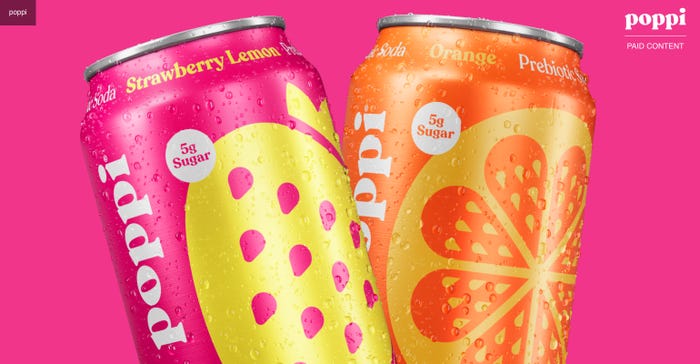World Mānuka Honey Day: Celebrating a unique superfood – articleWorld Mānuka Honey Day: Celebrating a unique superfood – article
November 4 marks World Mānuka Honey Day, celebrating the journey of mānuka from traditional Māori remedy to a research-backed superfood renowned for its remarkable health benefits.
October 23, 2024

Sponsored by UMF Honey
What makes mānuka honey so deserving of its own global celebration? On November 4, the world will celebrate the second annual World Mānuka Honey Day, shining a spotlight on the unique and powerful health benefits of New Zealand’s mānuka honey. As this special nectar begins to flow in New Zealand, this event kicks off the mānuka honey production season and highlights its role in boosting immune health, soothing sore throats and supporting overall wellness—just in time for winter in the northern hemisphere.
Once regarded as a simple folk remedy, mānuka honey has since captured the attention of scientists and health professionals around the globe. Unlike any other honey, mānuka is produced from the nectar of the unique Leptospermum scoparium tree, which thrives in New Zealand’s pristine landscapes. Recent research has identified mānuka honey’s Unique Mānuka Factor (UMF™), a unique group of bioactive compounds, such as methylglyoxal (MGO) and leptosperin, which in synergy contribute to its antibacterial, antioxidant and anti-inflammatory properties. Reflecting its growing global popularity, the mānuka honey market was valued at approximately $366 million in 2022 and is projected to grow to more than $525 million by 2030, according to Fortune Business Insights. Export volumes to the USA have grown 130% since 2019 making it the world’s largest mānuka honey market.
What sets mānuka honey apart is its complexity—research has identified more than 2,000 natural components within mānuka honey, making it significantly more intricate than other well-known types of honey. Sought out for its health benefits, mānuka honey is exported from New Zealand to 60 countries, with high-value sales in supermarkets, natural health stores, specialty shops and drugstores. Studies demonstrate its effectiveness in wound care, oral health, immune support and overall wellness. As global demand continues to soar, scientists and the honey industry are uncovering new applications, cementing mānuka honey’s place as a powerful ally in both modern medicine and everyday health practices.
“We’re still uncovering new health benefits every day. Our mission at Unique Mānuka Factor Honey Association is to support this research and help people around the world understand and experience the power of genuine mānuka honey,” says Campbell Naish, Marketing Manager for the Unique Mānuka Factor Honey Association (UMFHA).
Mānuka’s rich history
For centuries, the unique and powerful healing properties of the mānuka honey tree have been understood by the indigenous Māori people of New Zealand. Māori medicine, known as rongoā, has traditionally used a range of methods to treat various ailments, using plants like mānuka, kawakawa, harakeke (flax) and the flowers of the kōwhai tree. Specifically, mānuka bark infusions were used as a sedative, to treat stomach issues and to relieve urinary problems. The ash and gum from the mānuka tree were made into balms to treat scalds and burns, while the vapors from boiled mānuka leaves were inhaled to ease coughs and colds. The mānuka tree is regarded as a taonga—a sacred treasure—by the Māori, not only for its medicinal properties but also for its vital role in forest ecosystems, where it provides nursery cover for larger trees to grow through and becomes a habitat for New Zealand's famous birdlife.
While the benefits of mānuka honey were well understood anecdotally, in 1997, mānuka honey producers, marketers and researchers in New Zealand collaborated to advance the scientific understanding of mānuka honey. By working with experts and building a network of global partners, they began uncovering the mechanisms and unique compounds behind its powerful effects. Today, mānuka essential oils are also featured in a range of health and wellness products, and mānuka honey is celebrated globally for its impressive health benefits.
Recent studies have begun to uncover even more fascinating applications for this honey, particularly in oral health. Natural toothpastes and mouthwashes containing mānuka honey are emerging as effective tools for combating plaque and gingivitis, offering a natural alternative to conventional oral care products. With its anti-inflammatory and antibacterial properties, mānuka honey can help reduce gum inflammation while promoting overall oral hygiene. Its soothing effects also make it a popular ingredient in skincare products, where it is used to calm irritated skin, reduce redness and assist in the healing of blemishes and other skin conditions.
Ongoing research is exploring mānuka honey’s ability to support the immune system, address gut and digestive issues, its role as a natural antibiotic and even its potential in managing chronic health conditions. With new discoveries constantly emerging, mānuka honey’s status as a health and wellness staple continues to grow.
The Unique Mānuka Factor (UMF™) is key to recognizing the quality of genuine mānuka honey.
The Unique Mānuka Factor Honey Association (UMFHA) was founded 25 years ago by New Zealand beekeepers who recognized the need for a standardized system to certify the unique properties of mānuka honey. Today, the UMFHA certifies more than 150 licensed members, representing 70% of the mānuka honey processed and sealed in consumer packs in New Zealand.
“As global demand for mānuka honey increases, we’re committed to educating consumers about what makes this honey so unique. The UMF™ mark is your guarantee that you’re choosing a product backed by decades of research and a commitment to quality that’s second to none,” says Naish.
The UMFHA’s stringent standards ensure both consumer protection and the integrity of the mānuka honey industry. By collaborating with scientists and regulatory bodies worldwide, UMF™-certified honey guarantees quality and potency fore the shelflife of the product, a quality certification unmatched worldwide. Each batch undergoes a Four Factor Quality Assurance Test, which measures MGO, leptosperin, DHA and HMF to verify its potency, authenticity, shelf life and freshness. A UMF™ rating of 5+ to 10+ supports a healthy lifestyle, while 15+ to 20+ offers enhanced health benefits. The highest grades, 25+ and above, provide exceptional potency and nutritional support.
With the increasing popularity of mānuka honey, the market has seen a surge in products claiming to offer its benefits. However, not all mānuka honey is created equal. The UMF™ certification is the only independent standard that verifies the presence of all key factors in mānuka honey, ensuring that consumers get a product that is true to its label.
World Mānuka Honey Day serves as a global reminder that genuine mānuka honey, renowned for its unmatched bioactivity—including antibacterial, anti-inflammatory, antioxidant and immunomodulatory properties—comes exclusively from New Zealand. No other honey is as complex or as thoroughly researched as New Zealand's mānuka honey.
"World Mānuka Honey Day not only honors the unique properties of this exceptional honey but also educates consumers on how to identify genuine mānuka honey through UMF™ certification, ensuring they reap its remarkable health benefits," says Naish.
Dive deeper into the fascinating, unique world of mānuka honey through UMFHA’s brief, online Manuka Mastery course, which you can find here.
Read more about:
Sponsored ContentYou May Also Like



